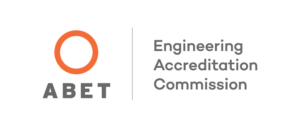Accreditation
Mission Statement
The mission of the Department of Biomedical Engineering is to:
- advance human understanding, health, and quality of life through internationally recognized research, discovery, and invention in the area of biomedical engineering
- educate world-class Ph.D. scientists and engineers for accomplishment in research, academics, medicine, and industry
- educate nationally recognized B.S. and M.S. graduates for success and leadership in industry and preparation for future study in medicine, science, and engineering;
- transfer scientific discoveries and biomedical technology to the private sector nationwide
- train students throughout the John and Marcia Price College of Engineering in biobased solutions to traditional engineering problems and the application of their specialty to biological and biomedical science
Educational Objectives
The biomedical engineering undergraduate program is dedicated to preparing graduates for professional careers. We educate students such that our graduates will be:
- successful in graduate programs, in professional schools, including medicine and law, or in a biomedical engineering aligned career
- able to effectively communicate and solve problems at the interface of engineering and biology appropriate to their chosen profession, as well as understand and apply standards of ethical behavior
- motivated to pursue life-long learning, including understanding contemporary questions at the interface of science, medicine, technology, and society
Student Outcomes
Graduates of the undergraduate program will have acquired the following skills and experiences to achieve the program educational objectives:
Undergraduate Engineering Program Outcomes (ABET 1-7)
- an ability to identify, formulate, and solve complex engineering problems by applying principles of engineering, science, and mathematics
- an ability to apply engineering design to produce solutions that meet specified needs with consideration of public health, safety, and welfare, as well as global, cultural, social, environmental, and economic factors
- an ability to communicate effectively with a range of audiences
- an ability to recognize ethical and professional responsibilities in engineering situations and make informed judgments, which must consider the impact of engineering solutions in global, economic, environmental, and societal contexts
- an ability to function effectively on a team whose members together provide leadership, create a collaborative and inclusive environment, establish goals, plan tasks, and meet objectives
- an ability to develop and conduct appropriate experimentation, analyze and interpret data, and use engineering judgment to draw conclusions
- an ability to acquire and apply new knowledge as needed, using appropriate learning strategies.
BME Specific Program Outcomes
- Applying principles of engineering, biology, human physiology, chemistry, calculus-based physics, mathematics (through differential equations) and statistics
- Solving biomedical engineering problems, including those associated with the interaction between living and non-living systems
- Analyzing, modeling, designing, and realizing biomedical engineering devices, systems, components, or processes
- Making measurements on and interpreting data from living systems
Accreditation
The Biomedical Engineering Bachelor Degree Program is accredited by the Engineering Accreditation Commission of ABET

More information regarding current graduation and enrollment